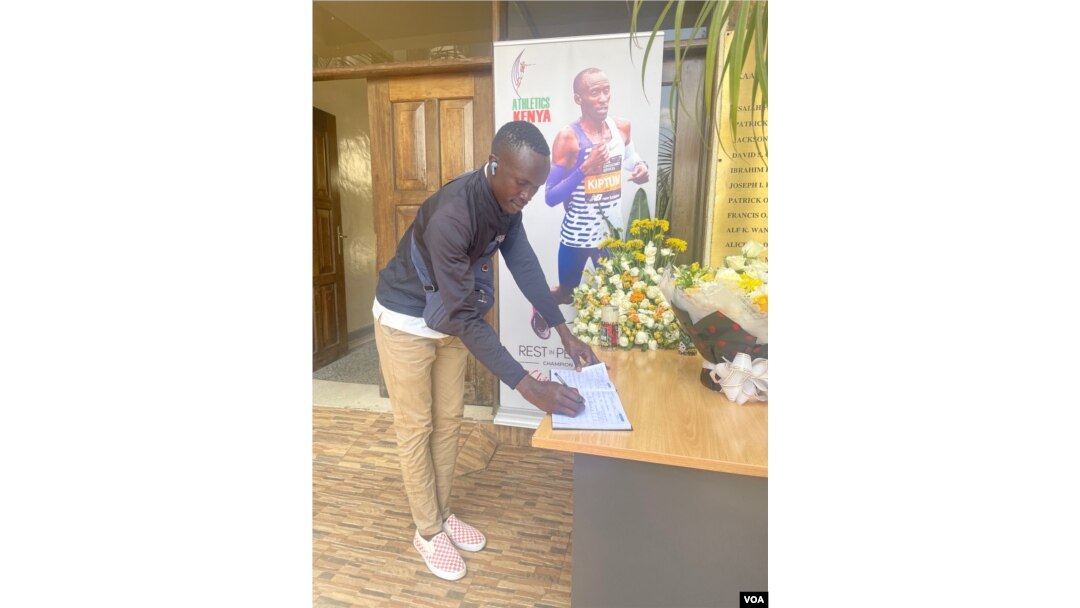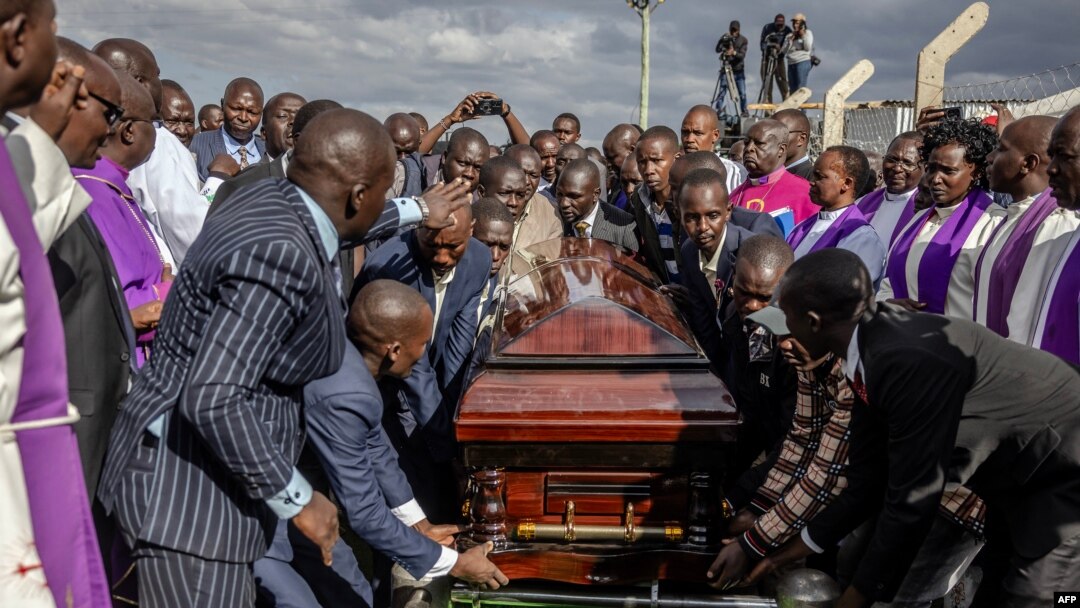Marathon world record-holder Kelvin Kiptum, who was killed this month along with his coach Gervais Hakizimana in a car crash, was buried Friday in his hometown of Chepkorio in western Kenya. Mourners remembered Kiptum as a humble, talented and hardworking athlete.
Family members, friends, top dignitaries, and thousands of others showed up Friday to say farewell and pay a final tribute to Kelvin Kiptum. Kenyan President was William Ruto among the speakers.
“In Kelvin, we saw the future of athletics in Kenya. Kelvin has stood out not just as a great athlete but as a great person...he was ambitious, disciplined and focused.”
Kiptum, who was just 24 when he died, touched many, including Brian Chebii, a resident of the runner’s home Elgeyo-Marakwet County. Chebii spoke to VOA after signing Kiptum’s condolence book for Athletics Kenya, the country’s sports governing body.
“Kelvin Kiptum … was a guy of capabilities ... running was his passion. He motivated us. That’s why when he passed away, it was a great pain for us. We can’t just send him off that way. That’s why I had to come and represent the rest of my colleagues.”

Brian Chebii, a resident of Elgeyo-Marakwet County, Kenya, signs a condolence book on Feb. 21, 2024, in Nairobi for marathon world record-holder Kelvin Kiptum, who was killed in a car crash. (Mariama Diallo/VOA)
Other messages in the book range from “Rest well, champ” to “The greats never die. They live in us and keep us going.”
Kiptum accomplished much in his short life, including setting a world record marathon time of two hours, 35 seconds in Chicago last October, beating the previous record holder, Kenya’s Eliud Kipchoge.
Kipchoge said Friday he was deeply saddened by the sudden death of an athlete “who had a whole life ahead of him to accomplish incredible greatness.”
That feeling was echoed by one of Kenya’s fastest sprinters, Ferdinand Omanyala, who told VOA the world lost Kiptum too soon.
“I was so touched by what happened because I can relate at how ambitious athletes are when they start doing professional athletics and how many goals they’ve set for themselves, so that's a very tragic thing that happened.”
It is important for young people to know that for an athlete, rising to the top can be a herculean task, he said.
“It’s a lot of work because it took me five years to run [the 100 meter dash] under 10 seconds. So that’s five years of consistent training, discipline, hard work and a lot of challenges in between, so it’s not an easy thing to rise to the top and be among the top in the world.”
Paul Tuitoek is the chair of Athletics Kenya, university division.
“The whole athletics family is definitely devastated. All our athletes are mourning, including our top marathoners. ... Of course, Kenyans were waiting to see what would happen at the Paris Olympics.”
Tuitoek told VOA he was hoping Team Kenya, with top athletes such as Kiptum, Kipchoge, Omanyala and others would scoop a few medals at the upcoming Summer Olympics in Paris.
Meanwhile, he said, the world can participate in shaping the legacy of Kiptum.
“I feel the family in conjunction with the government and Athletics Kenya can ... create a legacy for him so that he can be remembered because he’s already put marathon world running in another level.”
And Kiptum was hoping to do even better by becoming the first human to run a full marathon in under two hours.
He was an only child and leaves behind two children and a widow who, in tears, said that Kiptum was the love of her life and was the best husband and father to their two children. She said he will be missed.


